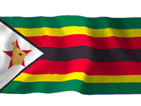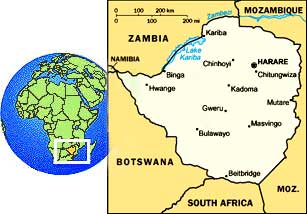- Zimbabwe Ambassador: Self-determination is at root of conflict (FCN, 04-22-2008)
- Activists: Fast track is right track in Zim land redistribution plan (FCN, 02-13-2003)
- Special Report on Zimbabwe land crisis (FCN, 10-13-2002)

WINDHOEK, Namibia (PANA) – The South African Development Community (SADC) Tribunal has moved the hearing of Zimbabwe’s land case, in which 78 White commercial farmers are challenging the expropriation of their farms, to July 16 after government of Zimbabwe asked the regional panel for an extension to prepare its defense and properly present its arguments.

The five-judge tribunal upheld an application by the lawyers representing the Zimbabwean government that it be granted time to prepare and be able to present its case.
The hearing opened in Windhoek where the Tribunal is headquartered May 28.
Advocate Prince Machaya, representing the Zimbabwean government, which is the respondent in the landmark case, made an application asking the court for an extension, arguing that his team did not have enough human and financial resources to be able to prepare its case.
Delivering judgment in the application, Justice Luis Mondhlane ordered the Zimbabwean government to file its submission by June 18 and set the hearing for July 16-18.
The case opened in October last year when White commercial farmer Michael Campbell successfully applied to the SADC court for an urgent ruling to halt the seizure of his farm by the Zimbabwean government.
The White commercial farmers, who are the applicants in the case, had argued strongly against further postponement of the case, citing continuing farm invasions in Zimbabwe.
Jeremy Gauntlett, who appeared for the applicants, said the remaining White commercial farmers in Zimbabwe were in an “enormously precarious and vulnerable position,” adding that further delay in the case would worsen their situation.
“The pattern which has emerged is one of delay, calculated delay by the respondent (Zimbabwean government), calculated delay in the hope that something will come up,” Mr. Gauntlett said.
Mr. Gauntlett also said the Harare government had failed to comply with initial interim relief, granted in December. Justice Machaya concurred that two commercial farms of the applicants had been invaded adding that he had brought the matter to the attention of Zimbabwe’s justice minister and attorney-general.
“I am aware that there has been persecution of some of the applicants and I have drawn the matter to the attention of the AG and the minister of Justice and therefore there is the need to comply fully with the order of the tribunal,” Justice Machaya said.












